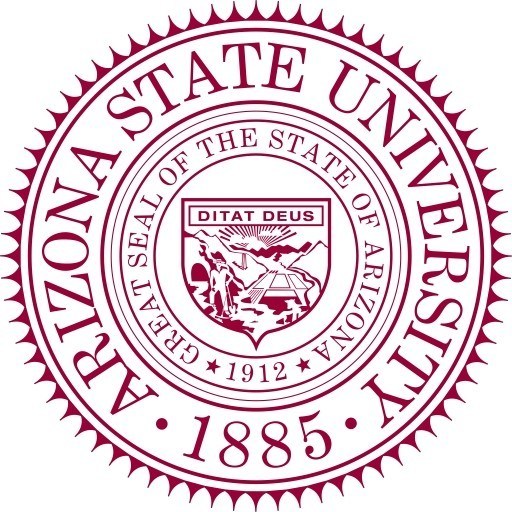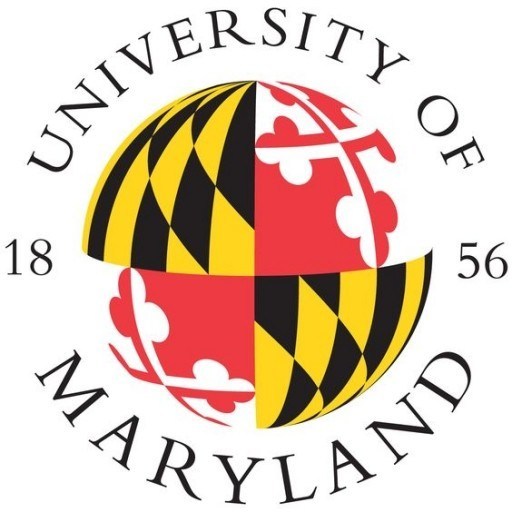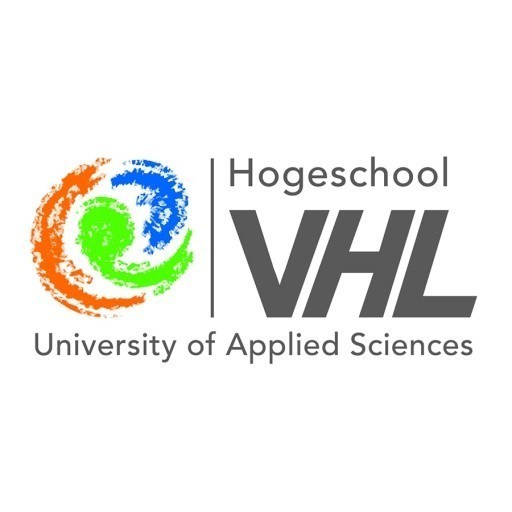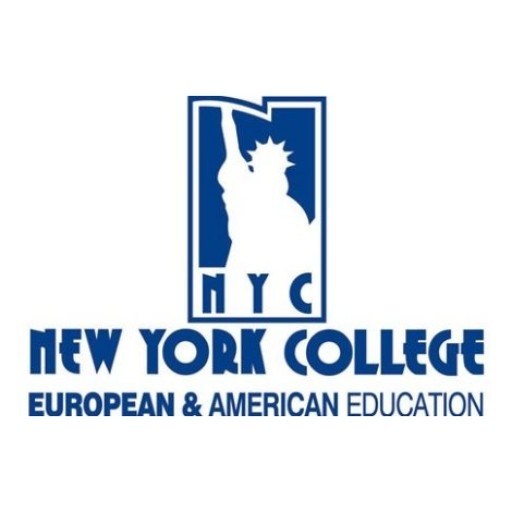Photos of university / #arizonastateuniversity
The Bachelor of Science in Supply Chain Management at Arizona State University is a comprehensive program designed to prepare students for dynamic careers in the global supply chain industry. This degree provides a solid foundation in logistics, procurement, transportation, inventory management, and information systems, equipping students with the essential skills needed to optimize supply chain operations and enhance organizational performance. Through a blend of theoretical coursework and practical applications, students will learn how to analyze complex supply networks, develop strategic sourcing plans, and leverage cutting-edge technologies to improve efficiency and reduce costs. The program emphasizes critical thinking, problem-solving, and data-driven decision-making, which are vital in today's fast-paced, interconnected markets. Students have opportunities to engage in internships, industry projects, and collaborations with leading companies, giving them real-world experience and professional connections. The curriculum also explores topics such as sustainability, risk management, and ethical practices within supply chains, aligning students with current industry standards and future trends. Additionally, the program offers specialization options that allow students to tailor their education according to personal interests and career goals. Graduates of the Supply Chain Management program will be well-prepared for roles such as supply chain analyst, procurement manager, transportation planner, operations manager, and logistics coordinator. They will gain the strategic insight and technical expertise necessary to succeed in a variety of industries, including manufacturing, retail, healthcare, technology, and government agencies. ASU’s commitment to innovation, research, and industry partnerships ensures that students receive a relevant and forward-thinking education that meets the evolving demands of the supply chain sector. Overall, the program aims to develop proactive, analytical, and ethical supply chain professionals who can lead organizations toward efficiency, resilience, and sustainable growth in a globalized economy.
- CIS 105: Computer Applications and Information Technology (CS)
- MAT 210: Brief Calculus (MA)
- WPC 101: Student Success in Business
- ENG 101 or ENG 102: First-Year Composition OR
- ENG 105: Advanced First-Year Composition OR
- ENG 107 or ENG 108: First-Year Composition
- SOC OR PSY course (SB)
- Humanities, Arts and Design (HU)
- MAT 211: Mathematics for Business Analysis
- ECN 211: Macroeconomic Principles (SB) OR
- ECN 212: Microeconomic Principles (SB)
- COM 100: Introduction to Human Communication (SB) OR
- COM 225: Public Speaking (L) OR
- COM 230: Small Group Communication (SB) OR
- COM 259: Communication in Business and the Professions
- ACC 231: Uses of Accounting Information I
- ECN 221: Business Statistics (CS)
- Historical Awareness (H)
- Natural Science - Quantitative (SQ)
- ACC 241: Uses of Accounting Information II
- SCM 300: Global Supply Operations
- WPC 301: Business Forum
- Cultural Diversity in the U.S. (C)
- SCM 315: Business Decision Models
- SCM 345: Logistics Management
- MGT 300: Organization and Management Leadership
- ENG 302: Business Writing (L)
- SCM 355: Supply Management (L)
- SCM 432: Planning and Control Systems for Supply Chain Management
- SCM 463: Global Supply Chain Management (G) OR
- Upper Division International Business Course AND
- Global Awareness (G)
- FIN 300: Fundamentals of Finance
- SCM 455: Research and Negotiation
- SCM 479: Supply Chain Strategy (L)
- LES 305: Business Law and Ethics for Managers
- MKT 300: Marketing and Business Performance
- WPC 480: W. P. Carey Capstone Course (L)
- Upper Division Elective OR
- SCM 440: Quality Management/Measurement
- Upper Division Humanities, Arts and Design (HU)
- Upper Division Elective
Upper Division International Business Course- select one course (3 credit hours)
- AGB 302: International Management and Agribusiness (G)
- ECN 306: Survey of International Economics (SB & G)
- MGT 302: Principles of International Business (G)
- MKT 425: Global Marketing Management (G)
- SCM 463: Global Supply Chain Management (G)
General Studies Electives
- ARB 101: Elementary Arabic I
- ARB 102: Elementary Arabic II
- BIO 320: Fundamentals of Ecology
- CHI 205: Chinese Calligraphy
- COM 207: Introduction to Communication Inquiry
- COM 259: Communication in Business and the Professions
- COM 281: Communication Activities
- COM 310: Relational Communication
- COM 312: Communication, Conflict, and Negotiation
- COM 317: Nonverbal Communication
- COM 341: Social Contexts for Performance
- COM 414: Crisis Communication
- COM 430: Leadership in Group Communication
- COM 453: Communication Training and Development
- COM 465: Intercultural Communication Workshop
- ENG 210: Introduction to Creative Writing
- ENG 213: Introduction to the Study of Language
- ENG 310: Intermediate Creative Writing
- ENG 314: Modern Grammar
- ENG 345: Selected Authors or Issues
- FAS 301: Introduction to Parenting
- FRE 111: Fundamentals of French
- FRE 472: Franco-Canadian Civilization
- GCU 433: Geography of Southeast Asia
- GER 101: Elementary German (G)
- GER 102: Elementary German (G)
- GER 111: Fundamentals of German
- GRK 101: Elementary Ancient Greek
- GRK 201: Intermediate Ancient Greek
- HST 389: Japan Society and Values/Premod
- IDN 101: Elementary Indonesian I
- IDN 102: Elementary Indonesian II
- ITA 420: Italian Cinema
- JPN 206: Japanese Calligraphy
- JPN 414: Introduction to Classical Japanese
- KOR 101: First-Year Korean I
- KOR 102: First-Year Korean II
General Studies Electives Continued
- LAT 101: Elementary Latin
- LAT 102: Elementary Latin
- MAT 242: Elementary Linear Algebra
- MAT 243: Discrete Mathematical Structures
- MAT 310: Introduction to Geometry
- MAT 342: Linear Algebra
- MAT 362: Advanced Mathematics for Engineers and Scientists
- MAT 370: Intermediate Calculus
- MAT 371: Advanced Calculus I
- MAT 372: Advanced Calculus II
- MAT 410: Introduction to General Topology
- MAT 415: Introduction to Combinatorics
- MAT 416: Introduction to Graph Theory
- MAT 442: Advanced Linear Algebra
- MAT 443: Introduction to Abstract Algebra
- MAT 444: Intermediate Abstract Algebra
- MAT 445: Theory of Numbers
- MAT 460: Vector Calculus
- MAT 461: Applied Complex Analysis
- MAT 462: Applied Partial Differential Equations
- MAT 472: Intermediate Real Analysis I
- MAT 475: Differential Equations
- MAT 485: History of Mathematics
- POR 101: Elementary Portuguese
- ROM 101: Elementary Romanian
- ROM 201: Intermediate Romanian
- ROM 313: Romanian Composition and Conversation
- ROM 314: Romanian Composition and Conversation
- RUS 101: Elementary Russian
- RUS 102: Elementary Russian
- SHS 101: American Sign Language I
- SHS 102: American Sign Language II
- SHS 201: American Sign Language III
- SHS 202: American Sign Language IV
- SPA 101: Elementary Spanish
- SPA 102: Elementary Spanish
- SPA 111: Fundamentals of Spanish
- SPA 315: Spanish Conversation and Composition for Bilinguals (C)
- SPA 316: Spanish Conversation and Composition for Bilinguals (L & C)
- SPA 434: Drama of the Golden Age
- SPA 454: 19th-Century Spanish American Narrative
- SPA 456: 20th-Century Spanish American Fiction
- SPA 486: Mexican American Novel
- SPA 487: Chicano/a Drama: Pachucos, Vendidos y Cerezitas
- THA 101: Elementary Thai I
- THA 102: Elementary Thai II
- Freshmen admission requirements: 1160 (prior to March 2016) or 1230 SAT Reasoning (after March 2016) OR 25 ACT score, OR graduated in the top eight percent of high school class, OR an overall high school GPA of 3.60 in ASU competency courses (scale is 4.00 = "A").
- Freshmen should select an additional major when applying for admission. Additional choices may include any of the W. P. Carey business BA programs or any other degree program outside of the W. P. Carey School of Business. Students who are not admissible to a W. P. Carey business BS major and who did not select a second major or are not admissible to their second major choice will be placed in a business BA program in the W. P. Carey School of Business.
- Test of English as a Foreign Language (TOEFL)
- International English Language Testing System (IELTS)
- All international students on F-1 or J-1 visas must provide a Financial Guarantee to show evidence of sufficient funds available for their students before their SEVIS Form I-20 can be issued.
Want to improve your English level for admission?
Prepare for the program requirements with English Online by the British Council.
- ✔️ Flexible study schedule
- ✔️ Experienced teachers
- ✔️ Certificate upon completion
📘 Recommended for students with an IELTS level of 6.0 or below.
Scholarships
ASU offers a limited number of merit-based scholarships for highly qualified international freshman students who are non-immigrant, nonresident and degree seeking. To be considered for this competitive scholarship, you must submit your application for admission by April 1, 2017. There is no separate scholarship application to complete.
The Bachelor of Science in Supply Chain Management at Arizona State University is a comprehensive program designed to prepare students for successful careers in the dynamic field of supply chain and logistics management. The curriculum emphasizes the development of critical skills in procurement, logistics, transportation, inventory management, and operations management, providing students with a well-rounded understanding of how to optimize supply chains in a global economy. The program benefits from ASU’s strong connections with industry leaders and its emphasis on experiential learning, integrating real-world projects, internships, and collaborations with corporate partners into the coursework. Students have access to cutting-edge facilities and resources to hone their practical skills and technological proficiency, including supply chain simulation labs and software tools.
The program aims to equip graduates with the analytical and managerial skills necessary to solve complex supply chain problems, enhance efficiency, reduce costs, and improve customer satisfaction. It covers a variety of relevant subjects such as data analytics, enterprise resource planning (ERP), supply chain strategy, and sustainability practices. The faculty members are experts in their fields, often involved in research and consulting that inform the curriculum. ASU’s focus on innovation and entrepreneurship ensures that students are prepared to adapt to technological advancements and evolving industry standards.
Students in the supply chain management program are encouraged to participate in internships and cooperative education programs to gain practical experience and build professional networks. The university’s location in the Phoenix metropolitan area offers advantageous proximity to numerous logistics hubs, distribution centers, and manufacturing companies, providing ample opportunities for hands-on learning and employment post-graduation.
Graduates from the program find employment across a wide range of sectors including manufacturing, retail, e-commerce, transportation, and government agencies. Companies value ASU’s supply chain graduates for their strong foundational knowledge, practical experience, and ability to analyze and improve supply chain processes. The program also offers pathways for advanced study at ASU or other institutions for students interested in specialization or academic careers. Overall, the Supply Chain Management program at Arizona State University is designed to develop strategic thinkers and effective managers prepared to lead in the competitive and ever-changing landscape of global supply chains.









